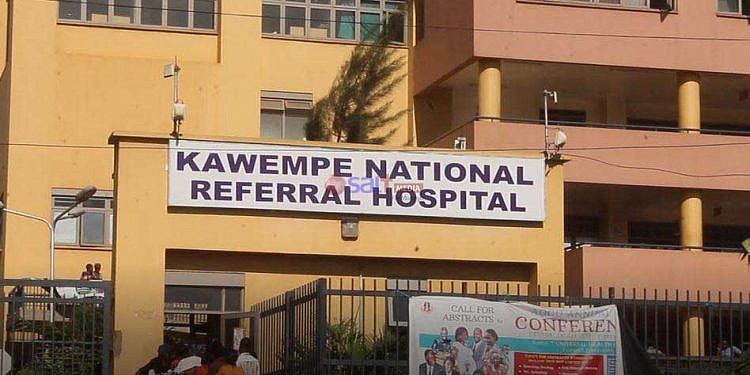President Museveni has announced sweeping reforms aimed at improving healthcare delivery and affordable access to clean water across Kampala, starting with the construction of three new government hospitals.
Addressing a large crowd at the close of his wealth creation tour in Kampala and Wakiso, the President criticized how two existing city hospitals Kiruddu and Kawempe have been managed and revealed plans to build additional health facilities in underserved divisions.
“We built two hospitals, one in Kiruddu and the other in Kawempe, but the Ministry of Health people turned them into referral hospitals, yet they were supposed to take the load off Mulago Hospital so that the people in Kawempe and Makindye do not run to Mulago first,” Museveni said.
Kiruddu and Kawempe National Referral Hospitals, both commissioned in 2016 with support from the African Development Bank and the Nigeria Trust Fund, were designed to reduce patient pressure on Mulago National Referral Hospital. Kawempe was primarily tasked with maternal and child health, while Kiruddu focused on infectious diseases and general care.
But their elevation to referral status, Museveni argued, has disrupted the referral chain and pushed patients back to Mulago, Uganda’s largest public hospital, for even routine health concerns.
To address this, Museveni outlined plans to build three new major hospitals each in Rubaga Division, Kampala Central, and Nakawa Division to fill the district-level healthcare gap.
“Our plan was to build another hospital in Rubaga Division, another in Kampala Central and another in Nakawa, and we indeed are going to build them,” he affirmed.
Once these hospitals are completed, Museveni plans to return Kiruddu and Kawempe to their originally intended status as district hospitals.
“When we do, I want Kiruddu and Kawempe Hospitals to go back to becoming district-level hospitals and not referral hospitals,” he emphasized.
Beyond healthcare, the President also addressed long-standing issues around water accessibility in the capital. He recalled discovering years ago that residents in some parts of Kampala were paying as much as Shs 200 for a jerrycan of water, which he called unacceptable.
This revelation prompted government to roll out 4,000 public water taps across the city to ease access. Now, Museveni says a new upgrade is on the way.
“These taps are still there, but now they are going to change them and make them prepaid so that you can pay and fetch water till your money runs out,” he said.
Under the upcoming prepaid system, the cost of water per jerrycan is expected to drop dramatically to just Shs 25 making it significantly more affordable for Kampala’s low-income earners.
Museveni’s announcements come as part of broader government efforts to improve urban service delivery, especially for communities that have long struggled with overloaded hospitals and high utility costs.




